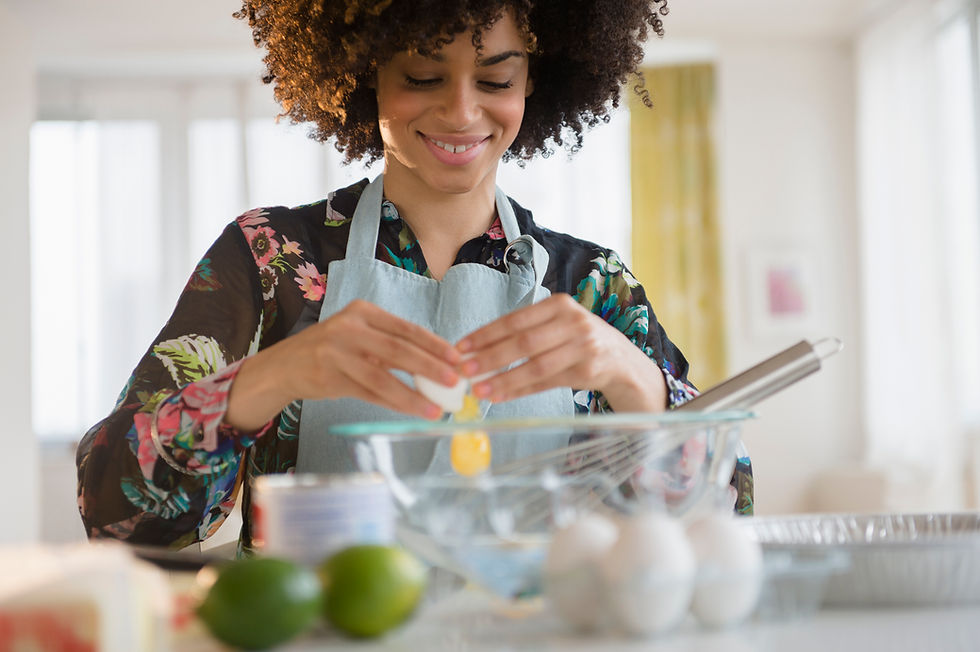Food is nourishment. Its function is to provide us with nutrients that will keep us healthy. But, "healthy" is not a destination, it's a resource for everyday life. Meaning that any action you take to benefit your health is just an action. There is no finish line.
That might sound deceiving considering so many of us have been socialized to view healthy eating and exercise as punishments for poor behaviour, when these are actually acts of self-care. Food nourishes our bodies and our minds. So, it's important to look at food as an opportunity to take care of yourself.
As a dietitian, I really try to work with my clients to get them to use food to enhance their physical, mental and social well-being.
Food works to nourish us physically, but it can also help us improve our mental and social health. Don't know where to start? Here are 4 simple ways you can use food to practice self-care:
1. Make Something With Your Hands
With many of us working from home, we have more of an opportunity to make foods from scratch. Cooking or baking activities that require you to use your hands, such as making bread, dumplings, sushi, cookies, and meatballs from scratch force you to focus solely on that task. In doing tasks like this, you are being fully present in this moment.

You are allowing yourself to be creative through food and you're performing an act of self-care because you are dedicating time to nourishing yourself.
Any act of cooking or preparing food for yourself is an act of self-care, regardless of if you use your hands or not. However, forming the food with your hands requires more attention than stirring a pot or sautéing vegetables. So, if you're hoping to make cooking feel like less of a chore, try to make something that requires you to use your hands.
2. Hydrate.

This one is pretty self-explanatory because staying hydrated with fluids is crucial for good health. Make yourself a cup of tea, iced tea, or add some cucumber and mint leaves to make infused water.
Drinking plain water can be seen as a very simple act of self-care, but turning it into something you can appreciate can go a long way.
3. Find a New Recipe
Similarly to Tip #1, finding a new recipe causes you to focus more on the task at hand. Being present and mindful about your cooking experience will make cooking feel like less of a chore, especially if you're excited about the finished product. Whether the end result is good or not, spending time doing something for yourself is the real reward here.
4. Eat With Others

According to Canada's Food Guide, eating with others is part of healthy eating and I completely agree. As I mentioned before, food can be used to improve your social health as well. Eating with others is a great way to engage with your social support persons and make meals more enjoyable.
During this time, I don't advise you eat with people outside of your small social circle because of social distancing guidelines. However, I do recommend that you eat with your family members or those you live with, or you can also eat with a friend over Zoom or FaceTime.
Use these tips above to help you get started on your self-care journey. These are things that I try to implement with my clients and once they see food in this way, their relationship towards food changes. Healthy eating doesn't have to be hard or restrictive, because it's really just about nourishing your body and your mind.


Comments